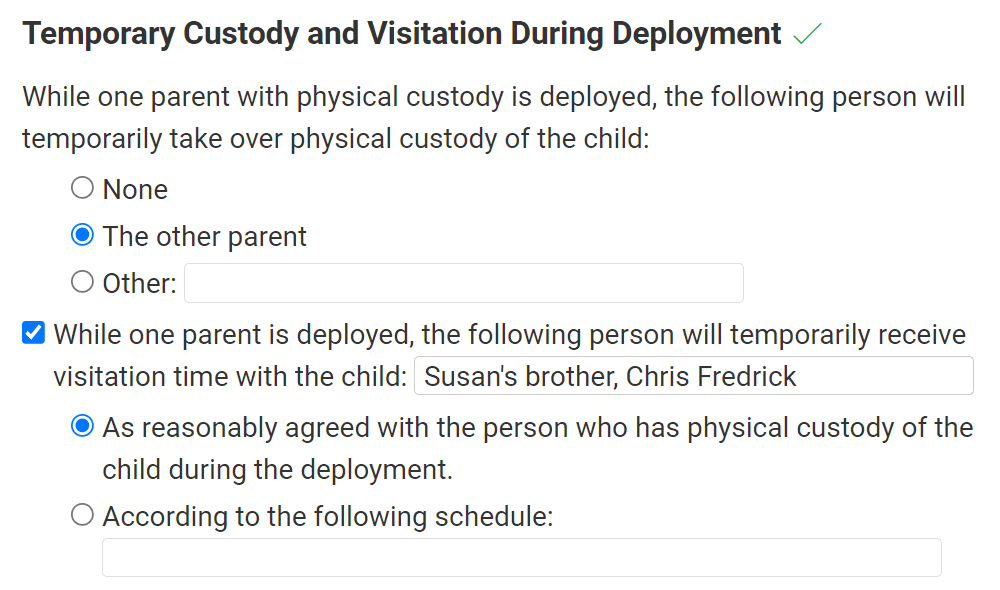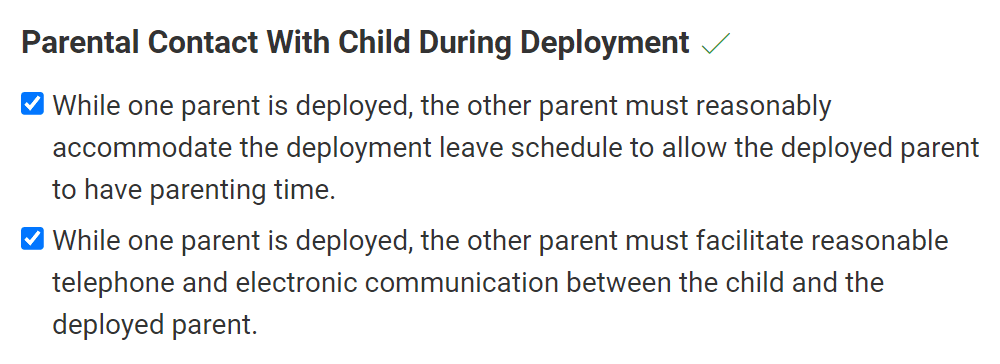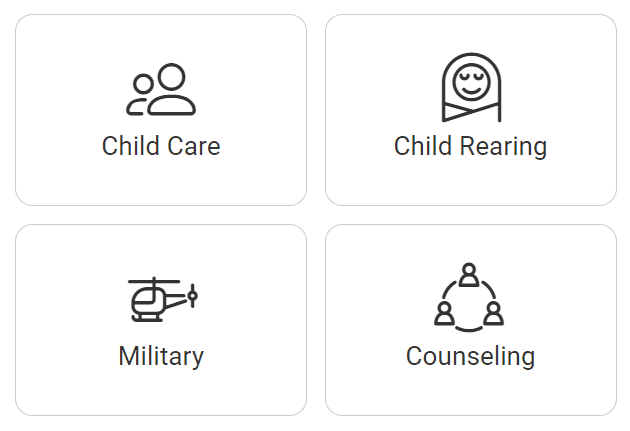Military Custody Agreements While Deployed
If you or your co-parent are in the military, your custody agreement should contain specific provisions designed to protect you and your child. Making parenting arrangements during a custody battle can be a long and technical process — all the more so when a parent is in the military.
The last thing you need is to be penalized for serving your country. Knowing what to include in your custody agreement will help you protect your rights and the rights of your child.
Are there laws to protect parents who are in the military?
Yes. The Servicemembers Civil Relief Act (SCRA) is a federal law that protects military personnel from having to defend themselves in civil suits while they are deployed. It protects them from being sued when they are not able to be present to defend themselves.
Any time you're deployed, your ex won't be allowed to legally petition for a permanent change in custody, nor can they proceed with a pending divorce or custody case. That would be taking advantage of your absence. If they attempt to do so, you'll need to invoke the law to stop them.
Many states have specific laws that protect the custody rights military personnel in the event they are deployed. Check the laws regarding custody and military families in the state that has jurisdiction over your child's custody to be aware of your rights.
If there are laws, why should my custody arrangement be any different?
You should never rely completely on the law to protect you in custody disputes. Family courts consider the best interests of the child when making decisions in custody cases, which means they look at your child's unique needs and situation. No law guarantees that either parent gets custody.
Suppose your ex files for a different type of custody while you are abroad. The judge, knowing that you're deployed, may pause (stay) the case until you return. However, upon your return, the judge may decide that, as you were gone for a significant amount of time, your child is better off remaining with the person who's been their primary caregiver.
How are custody agreements different for military families?
Your custody agreement should include detailed information and address all of the possibilities you may face as a member of the military. Think, plan, and protect yourself and your child.
What should I include in my military custody agreement?
There are many things you should consider including in your agreement in addition to the basic requirements:
A flexible visitation schedule
As you know, military work isn't always 9–5, and your work can change every few months — but your child shouldn't have to miss out on time with you. Consider a written plan that allows you to see your child for a specific amount of time each week or month, contingent upon your availability.
Provisions for leave and vacations
Military personnel receive generous vacation time. If you want to spend it with your child, include provisions in your agreement to allow this.
Provisions for surrogate visitation during deployment
You may want to consider including a stipulation that designates another person who can exercise your visitation rights while you are deployed.
If you both agree, you can select a person to act as a substitute for you while you are away. Your parent, sibling or spouse (or any mutually agreed upon person) would be able to spend time with your child while you are deployed and follow the same schedule that you do.
This is a great way to ensure your child stays in the custody routine and is able to spend time with your loved ones.
 You can customize this with Custody X Change.
You can customize this with Custody X Change.
Methods of communication during deployment
Technology enables you to see and talk to your child from halfway around the world. You can include provisions in your agreement that allow you to use phone and video to speak with your child on a frequent, ongoing basis. You don't have to lose touch with your child just because you are deployed.
You can create a set of guidelines for this type of communication in your agreement so you will always be able to "see" your child. You may have to pay for the equipment and internet service as a condition of this arrangement, but it will be a very good investment.
 You can customize this with Custody X Change.
You can customize this with Custody X Change.
Provisions for your return
When you get back from your deployment, you should be able to resume the same schedule that was in effect when you left. You may even want to include stipulations for additional visitation time with your child when you return from your deployment.
Provisions for an out-of-area transfer
You will want to address how a possible relocation will affect your custody agreement. If you are transferred out of your child's home state, you will need to renegotiate your agreement to accommodate the distance. You should include a thoroughly detailed plan that encompasses a long-distance visitation schedule.
In the case of a transfer, your custody agreement may need to address exchanges by flight, and you'll need to ensure that it doesn't prohibit your child from traveling to the new location.
Your service is valuable to your country. You should never have to feel as though you are being punished for being in the military because your custody situation is affected by it.
Planning ahead will help you retain your custody rights in the future.
The easiest way to make a custody agreement
Creating a custody agreement on your own can feel overwhelming. You have to be sure to use airtight legal language and can't omit any required information.
Use technology to take the guesswork out of the equation. The Custody X Change app walks you through each step of creating a comprehensive custody agreement.

The result is a professional document that demonstrates your competence as a parent and secures your child's future.
The easiest and most reliable way to make a custody agreement is with Custody X Change.
Try this with Custody X Change.
